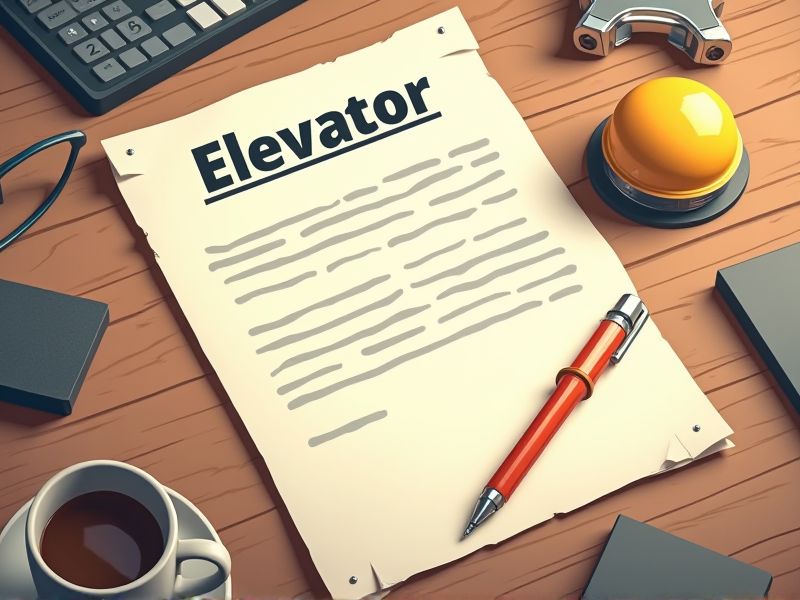
Elevator mechanics work in an industry where precision and safety are paramount, dealing with complex machinery that requires specific technical skills. Certification ensures they possess the necessary expertise to install, maintain, and repair elevators properly, minimizing risks and enhancing system performance. Regulatory bodies and employers mandate certain certifications to uphold safety standards and protect public welfare. Key certifications that elevator mechanics may need include those that validate both their technical proficiency and adherence to safety regulations.
State Elevator Constructor License
The State Elevator Constructor License ensures that elevator mechanics possess the necessary skills and knowledge to safely install and maintain elevator systems, reducing the risk of accidents and malfunctions. The licensing process typically requires candidates to demonstrate proficiency through a combination of education, training, and hands-on experience, which contributes to a standardized level of expertise within the industry. Compliance with state regulations by obtaining the license helps protect the public, as elevators are a common component in many buildings and pose potential hazards if improperly serviced. Employers often require the license to verify the competency and reliability of their workers, supporting industry safety and efficiency.
Certified Elevator Technician (CET)
Elevators are complex systems, and a Certified Elevator Technician (CET) ensures that they are installed and maintained according to industry safety standards. CET certification provides comprehensive training, reducing the risk of accidents and enhancing the reliability of elevator operations. Employing CET-certified professionals can lead to extended equipment lifespan because of their advanced problem-solving skills and knowledge about up-to-date technologies. CET also offers credibility to service companies, building trust with clients and regulators.
National Association of Elevator Contractors (NAEC) Certification
NAEC Certification enhances an elevator mechanic's credibility by providing industry-recognized standards of expertise and safety. The training ensures mechanics possess the latest knowledge on modern elevator technologies, which reduces the risk of accidents. Certification validates the skills and competence needed for complex installations and maintenance tasks, reassuring employers and customers. In a competitive job market, NAEC Certification can be a differentiating factor that opens up more employment opportunities.
International Association of Elevator Constructors (IAEC) Apprentice Certification
Elevator mechanics require expertise in the latest technology, and the IAEC Apprentice Certification provides standardized, up-to-date training. Certification ensures proficiency in safety standards, crucially reducing the risk of accidents. Employers value certified mechanics for their demonstrated commitment to maintaining high-quality service. Having this certification can lead to better job opportunities and career advancement in the field.
OSHA 10-Hour Construction Safety Certification
Elevator mechanics often work in hazardous environments, making the OSHA 10-Hour Construction Safety Certification crucial for enhancing their understanding of potential risks. This certification equips them with the knowledge to manage job site safety effectively, reducing the likelihood of accidents and injuries. Compliance with safety standards not only protects workers but also ensures that employers meet federal regulations, minimizing legal liabilities. Learning about construction-specific safety practices helps maintain operational efficiency while safeguarding both personnel and equipment.
OSHA 30-Hour Construction Safety Certification
Elevator mechanics often work in environments with high potential for hazards, and OSHA 30-Hour Construction Safety Certification provides comprehensive training to mitigate these risks. The certification enhances knowledge of safety regulations and standards critical for preventing accidents on construction sites. Employers prefer workers with this certification because it signifies a commitment to maintaining safe work practices and compliance with industry regulations. Training in hazard recognition and safe work practices ultimately reduces workplace injuries, leading to fewer disruptions and increased productivity.
ANSI/ASME A17.1 Safety Code Training Certification
Elevator mechanics operate in environments with technical complexity and potential hazards, making ANSI/ASME A17.1 Safety Code Training Certification essential to ensure they adhere to safety standards. This certification equips mechanics with knowledge of updated safety protocols, reducing the likelihood of accidents and improving operational efficiency. Understanding the safety code mitigates risks associated with elevator installation, maintenance, and repair, safeguarding both workers and passengers. Employers often require this certification to ensure compliance with regulatory standards and enhance the credibility of their workforce.
Electrical Systems Certification for Elevator Maintenance
Electrical systems certification for elevator maintenance is needed because it ensures that mechanics understand and adhere to safety standards, reducing the risk of accidents. Certified mechanics possess the necessary technical knowledge to diagnose and repair complex electrical issues, minimizing downtime and disruptions. Having a certification can lead to improved operational efficiency and extend the lifespan of elevator systems through proper maintenance. Regulations often mandate certified professionals to meet compliance requirements, aligning with industry best practices.
Hydraulic Systems Certification for Elevators
Hydraulic systems certification ensures elevator mechanics are equipped with the necessary knowledge and skills to safely and efficiently maintain and repair hydraulic elevators. Inadequate training could lead to mechanical failures, increasing the risk of accidents and injuries in elevator operations. Certification also helps standardize best practices, which facilitates consistent performance and prolongs the lifespan of the equipment. Regulatory compliance often mandates certified professionals to guarantee public safety and meet legal requirements.
Rigging and Hoisting Technician Certification
Obtaining Rigging and Hoisting Technician Certification is essential for an elevator mechanic as it ensures they have the necessary skills to safely handle and maneuver heavy equipment. Understanding load dynamics and rigging techniques reduces the risk of accidents during elevator installation and maintenance. A certified mechanic is better equipped to comply with safety regulations, minimizing potential liabilities for employers. The certification also enhances a mechanic's credibility, leading to more job opportunities and professional advancement.
Summary
When you acquire certifications as an elevator mechanic, your skills and knowledge will be validated, increasing your credibility in the field. Certified mechanics often find better job opportunities and can negotiate higher wages due to their specialized expertise. Employers generally prefer hiring certified technicians, leading to more stable employment. Certification can also enhance your ability to diagnose and resolve complex problems efficiently.
